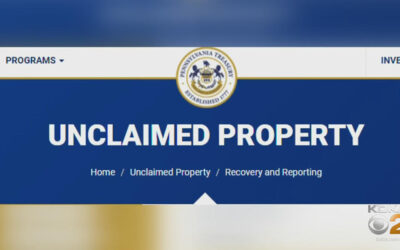Surplus funds, often referred to as excess funds or surplus money, arise when a foreclosed property is sold at a public auction for an amount greater than the outstanding mortgage or lien. The difference between the sale price and the owed amount is termed as surplus funds. One important question is, how long does it take to get surplus funds? We will talk about that in this blog post. Surplus funds can be a financial relief for former property owners, especially after the distress of losing their property.
How long does it take to get surplus funds?
Once the foreclosure sale concludes, the surplus funds don’t immediately get disbursed to the former homeowner. Instead, they are typically held in a court registry or by the foreclosure trustee. This holding period allows for any claims or liens on the property to be addressed.
Exploring the Average Timeline
On average, the timeline for disbursing surplus funds to the rightful claimant ranges between 90 to 120 days post the foreclosure sale. This three to four-month window is a general estimate, serving as a guideline for most standard cases.
Breakdown of the 90-120 Day Timeline:
- Days 1-30: After the foreclosure sale, the initial month is primarily administrative. The sale’s details are documented, any remaining debts on the property are settled, and the surplus funds are calculated and verified.
- Days 30-60: During this period, notifications are sent out to the former homeowner, informing them of the surplus funds. Additionally, any other potential claimants, like secondary lienholders, are also notified.
- Days 60-90: This phase is crucial for claim verification. The former homeowner or any other claimants must provide necessary documentation to prove their claim to the surplus funds. This might include identity verification, proof of ownership, or any other relevant legal documents.
- Days 90-120: Once all claims are verified, the disbursement process begins. The rightful claimant receives the surplus funds, either through a check or a direct bank transfer.
Factors Affecting the Timeline
Several elements can influence the time it takes to receive surplus funds:
- Competing Claims:
- When more than one party believes they have a right to the surplus funds, it can lead to a tug-of-war scenario. For instance, junior lienholders, second mortgage holders, or other creditors might stake a claim on the funds. Resolving these competing claims can be time-consuming, especially if legal intervention becomes necessary.
- Existing Liens:
- Liens are legal claims or holds on a property, signifying an unpaid debt. Before surplus funds can be released, all existing liens on the property need to be settled. The process of verifying and clearing these liens can extend the timeline, especially if there are multiple liens or if any are disputed.
- Bankruptcy Proceedings:
- If the former property owner has declared bankruptcy, it introduces an added layer of complexity. The surplus funds might be considered an asset in the bankruptcy estate, and their disbursement would need to align with bankruptcy laws and court decisions.
- Legal Disputes:
- Disputes related to the property, its ownership, or the foreclosure process itself can lead to delays. For instance, if there’s a contention about the legality of the foreclosure or if the former homeowner challenges the sale, it can halt the disbursement of surplus funds until the dispute is resolved.
- Administrative Delays:
- Sometimes, the delay might be due to bureaucratic processes. This could be because of backlog at the court’s office, slow processing times, or even clerical errors. Such administrative issues, while not tied to the property’s specifics, can still impact the timeline.
- Communication Barriers:
- Effective communication between the involved parties is crucial. Delays can occur if the former homeowner is hard to reach, has moved without leaving a forwarding address, or if there are errors in the contact information provided.
- State and Local Regulations:
- The rules governing surplus funds can vary from one jurisdiction to another. Some states or localities might have expedited processes, while others could have more extended waiting periods or additional verification steps.
- Foreclosure Deed Filing:
- The timeline can be extended if there’s a wait for the foreclosure deed to be filed. This deed is a crucial document that confirms the completion of the foreclosure process and the change in property ownership.
- Intervention of Surplus Recovery Companies:
- Sometimes, third-party companies might approach former homeowners offering to help recover surplus funds for a fee. While some are legitimate, others can be scams. Engaging with such entities without due diligence can lead to unnecessary delays or even loss of funds.

Case Study: Surplus Funds Involving Deceased Owners
In situations where the previous property owner has passed away, the process can become more complex. The surplus funds might be claimed by heirs or beneficiaries, leading to potential disputes and extended timelines.
Case Study: Surplus Funds with Multiple Property Owners
When a property has multiple owners, and it goes into foreclosure, the distribution of surplus funds can become a point of contention. Each owner might have a different stake in the property, leading to varied claims on the surplus money. This can, in turn, affect the timeline for disbursal.
Navigating Surplus Funds with Competing Claims
Competing claims can arise when more than one party believes they have a right to the surplus funds. This could be due to multiple liens, second mortgages, or other financial entanglements related to the property. Resolving these claims can be time-consuming and might require legal intervention.
Addressing Surplus Funds in Bankruptcy Cases
Bankruptcy can significantly impact the process of claiming surplus funds. If the former property owner has declared bankruptcy, the surplus funds might be used to pay off other debts. This can lead to delays and, in some cases, reduce the amount of surplus funds available.
Resolving Liens for Surplus Funds
Before surplus funds can be released, all existing liens on the property need to be settled. This is crucial as lienholders have a legal right to the funds. Depending on the number and complexity of the liens, this can extend the timeline for receiving surplus funds.
Extending the Timeline: Foreclosure Deed Filing
In some cases, the timeline for receiving surplus funds can be extended by up to 90 days if there’s a wait for the foreclosure deed to be filed. This deed confirms the completion of the foreclosure process and the change in property ownership.
Conclusion
Understanding the timeline for receiving surplus funds after a foreclosure is crucial for former property owners. While the average wait time is 90-120 days, various factors can influence this duration. Being aware of these factors and seeking legal advice can help navigate the complexities and ensure a smoother process.
FAQs (Frequently Asked Questions):
- How long does it take to get surplus funds after a foreclosure sale?
- On average, it takes between 90 to 120 days. However, this can vary based on several factors discussed above.
- Are there any fees taken out from the surplus funds?
- Yes, there might be administrative fees or charges related to the foreclosure process deducted from the surplus funds.
- Can I claim surplus funds without an attorney?
- While it’s possible to claim surplus funds without legal representation, having an attorney can simplify the process and ensure all legal rights are protected.
- What happens to surplus funds if I don’t claim them?
- If not claimed within a specified period, surplus funds might be transferred to the state’s unclaimed funds department. It’s essential to check with local regulations and claim the funds within the stipulated time frame.
Mehedi Miraz is the passionate writer behind RealEstateTracer.com. With a love for writing and a fascination for the world of property, Mehedi has honed his expertise through years of dedicated research. His words breathe life into every aspect of the industry, making complex topics simple and enjoyable to explore. Armed with valuable insights, Mehedi is on a mission to share knowledge, empowering readers to navigate the real estate landscape with confidence.






